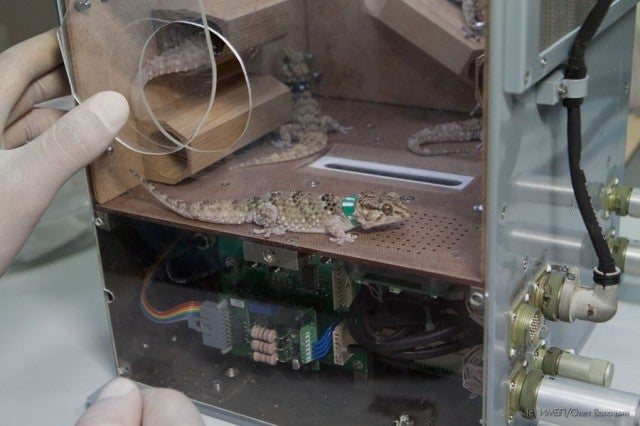Don't worry, control of the Russian gecko sex satellite has been restored
Research into gecko sex in zero gravity thought still to be 'viable'

Your support helps us to tell the story
From reproductive rights to climate change to Big Tech, The Independent is on the ground when the story is developing. Whether it's investigating the financials of Elon Musk's pro-Trump PAC or producing our latest documentary, 'The A Word', which shines a light on the American women fighting for reproductive rights, we know how important it is to parse out the facts from the messaging.
At such a critical moment in US history, we need reporters on the ground. Your donation allows us to keep sending journalists to speak to both sides of the story.
The Independent is trusted by Americans across the entire political spectrum. And unlike many other quality news outlets, we choose not to lock Americans out of our reporting and analysis with paywalls. We believe quality journalism should be available to everyone, paid for by those who can afford it.
Your support makes all the difference.Russian space agency Roscosmos has confirmed that it has re-established communication with its Foton-M4 satellite, meaning there are no longer sexually experimental geckos drifting lost in space, possibly building their own government and conspiring to populate a planet.
The satellite made headlines last week when ground lost control with it just days after launch and was no longer able to send it commands.
"The link is established, the prescribed commands have been conducted in accordance with the plan," said Roscosmos chief official Oleg Nikolayevich Ostapenko.
Foton-M4 has a five-gecko crew, who were fired into space to test the effects of microgravity on sex, with this phase of the experiment already being underway when communication was lost.
Ostapenko added that "90 percent" of the satellite’s experiments are still viable, but didn't specify whether this included the sexually experimental lizards.
Flies, plant seeds, and various microorganism are also aboard the Foton-M4, the loss of control on which might have been caused by it being struck by orbital debris.
Had communication not been restored, the satellite would have orbited the Earth for about four months instead of two, and, bar any dystopian coups, the gecko crew would have perished upon uncontrolled atmospheric re-entry.
Join our commenting forum
Join thought-provoking conversations, follow other Independent readers and see their replies
Comments